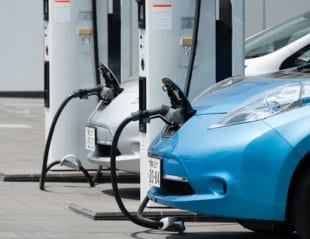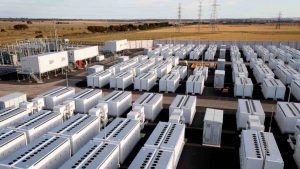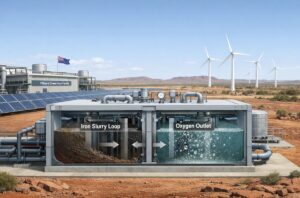A new green loan scheme backed by the Clean Energy Finance Corporation is hoping to boost the uptake of electric cars in Australia, by offering consumers cheaper finance to buy and lease low emissions vehicles.
The initiative, called Metro Green, is being launched by Australian broker Metro Finance, and will use up to $50 million in CEFC finance to offer customers a 0.7 per cent discount on cleaner “best in class” cars, as well as EVs and hybrids, the CEFC said on Tuesday.
The small concession offers a welcome incentive for EV uptake in Australia, where virtually none has existed, and market growth has lagged embarrassingly behind other developed countries.
It comes at time when the range of affordable EVs being offered to Australian consumers is set to expand, with the new model Nissan LEAF – the latest version of the world’s best selling electric vehicle, pictured above – due to arrive here in the second half of 2018, and Tesla’s mass market offering, the Model 3 slated to follow not long after.
CEFC CEO Ian Learmonth said reducing transport-related carbon emissions was a critical focus area for the CEFC, particularly through its Sustainable Cities Investment Program.
“Transport is responsible for around 16 per cent of Australia’s greenhouse gas emissions. This could be dramatically reduced if businesses replace their old vehicle fleets with best-in-class models,” Learmonth said.
“The scale of emissions reduction that can be achieved through upgrading vehicles with already available technology is staggering,” he added.
“National Transport Commission figures show that if Australian consumers had purchased vehicles with best-in-class carbon emissions in 2016, national average carbon emissions would have been reduced by 59 per cent.
“Those figures don’t include electric vehicles, which have zero tailpipe emissions.”
Metro Finance chief Phillip Crossman said the company hoped to use the Metro Green product to put more customers into low emissions vehicles by both educating and incentivising customers.
“To make it easier, we’re providing our brokers with statistics and standards on vehicles and equipment that qualify for the discount. That way they can demonstrate to customers what makes a
‘green’ choice a good choice,” Crossman said.
A special website will also be set up, allowing brokers to quickly identify if a vehicle qualified for the discount. If not, the system would recommend alternate qualifying lower emissions vehicles.
“In this way, Metro Finance will be leading the movement to promote green finance within the transport industry which it regards as an inevitable progression,” Crossman said.
This article was originally published on RenewEconomy’s sister site, One Step Off The Grid, which focuses on customer experience with distributed generation. To sign up to One Step’s free weekly newsletter, please click here.









